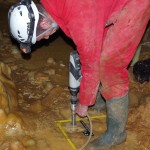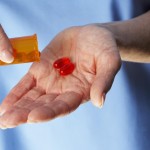A revolutionary treatment using patients’ own cells may mend damaged hearts, a study shows.
Stem cells were injected into the heart of people with severe – or end-stage – heart failure.
After a year they suffered nearly two fifths fewer deaths and admissions to hospital because of an heart related to their condition.
Scientists said the stem cell therapy could one day replace transplants and pacemakers.
Heart failure affects about 900,000 people in the UK with more than half aged over 75.
The condition caused by the heart failing to pump enough blood around the body at the right pressure and is linked to other serious health conditions, including coronary heart disease, heart attack and high blood pressure.
Cardiac surgeon Dr Amit Patel, of Utah University, said: “For the last 15 years everyone has been talking about cell therapy and what it can do.
“These results suggest that it really works.”
Stem cells – capable of differentiating into any type of cell in the human body – were harvested from the patients’ own bone marrow.
The study called ixCELL-DCM compared them with a group of patients receiving a placebo.
It’s the largest cell therapy trial for treating heart failure to date and the findings were presented at an American College of Cardiology meeting and published in The Lancet.
It randomly assigned cell therapy or the dummy treatment to 126 patients with end-stage heart failure.
A small amount of bone marrow was drawn from each patient and two types of stem cells, mesenchymal stem cells and M2 macrophages, were selected and cultured in the laboratory.
The cell types were chosen because pre-clinical studies suggested they have the ability to remodel the heart, increase heart tissue and reduce inflammation.
The therapy, called ixmyelocel-T, was then injected into the heart using a minimally invasive procedure.
A 3-D electrochemical technique mapped damaged areas in the heart and cells were delivered directly to them via a thin tube called a catheter.
On average, the procedure took less than two hours, and if there were no complications, patients were typically discharged the next day.
After one, three, six and twelve months assessments showed cell therapy patients had fewer side effects and complications than the placebo group.
At one year all cardiac events were catalogued, including deaths, and heart-related hospitalisations and unplanned clinic visits.
The group treated with cell therapy had fewer deaths compared to the placebo group – four compared to eight – and fewer heart failure related hospitalisations contributing to a 37 per cent overall reduction in cardiac events.
Dr Patel said: “This is the first trial of cell therapy showing it can have a meaningful impact on the lives of patients with heart failure.”
Other cell therapy trials tested single stem cell populations and did not report impacts on the end results of death or other heart related clinical outcomes.
A phase 3 clinical trial will be needed to determine whether ixmyelocel-T can one day be offered as an alternative to current treatments for end-stage heart failure – including heart transplantation.
By Mark Waghorn





